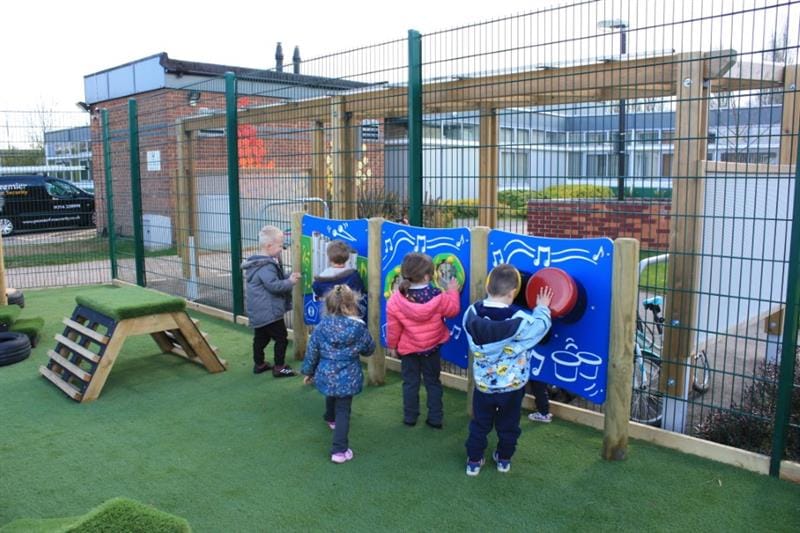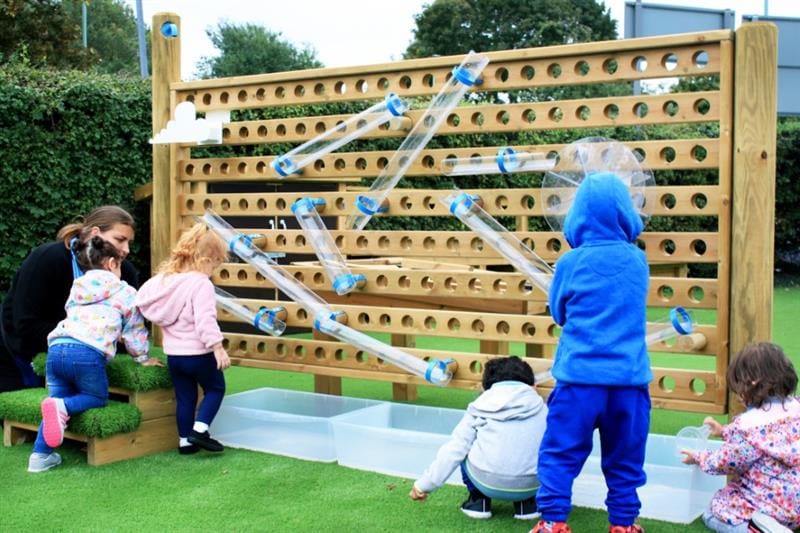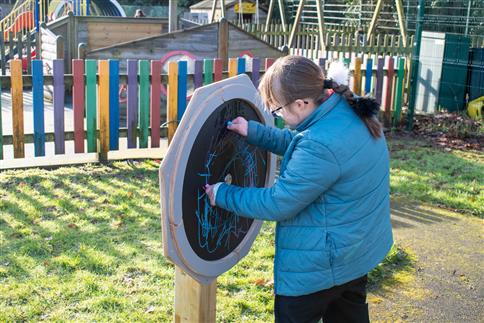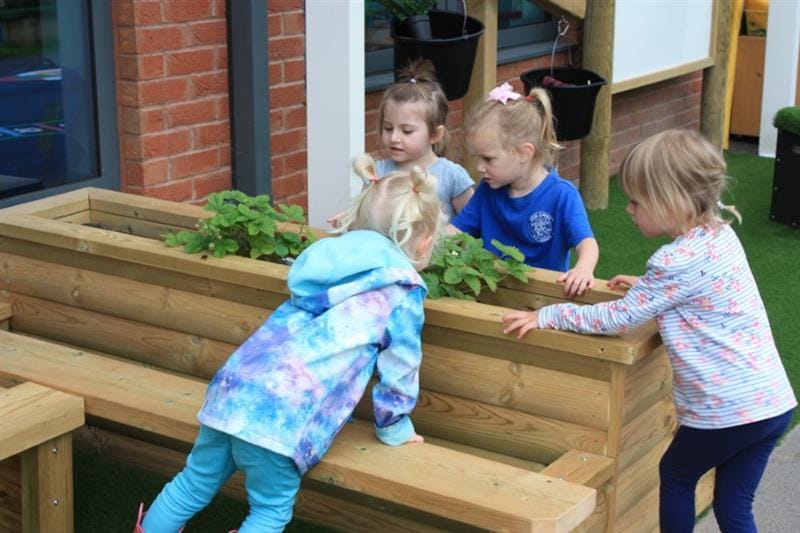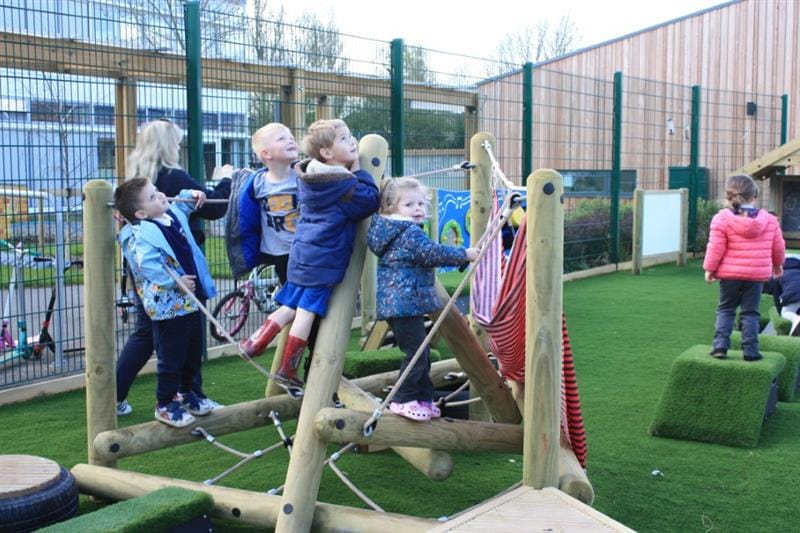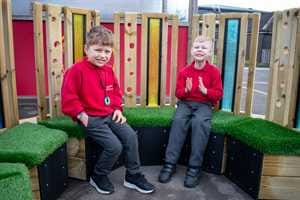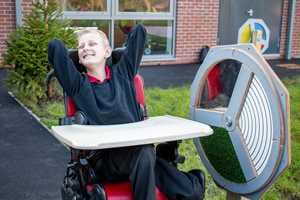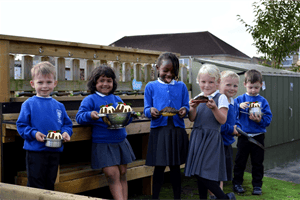
Special Educational Needs
Importance of Sensory Play In Nursery
Sensory play is the word we use to describe fun activities that help with sensory development stimulate any of the children’s senses: touch, smell, taste, sight, hearing and the less spoken about, vestibular system and proprioception.
There are many engaging sensory play activities that can bring countless benefits to children attending nursery and preschools. Children can develop their thinking, language, social, emotional and physical skills as they explore and discover the materials and the world, around them.
Sensory play contributes towards the improvement of many important early skills and senses, which is why we believe it is a very beneficial activity that should be promoted in nurseries and preschools through numerous, stimulating activities.
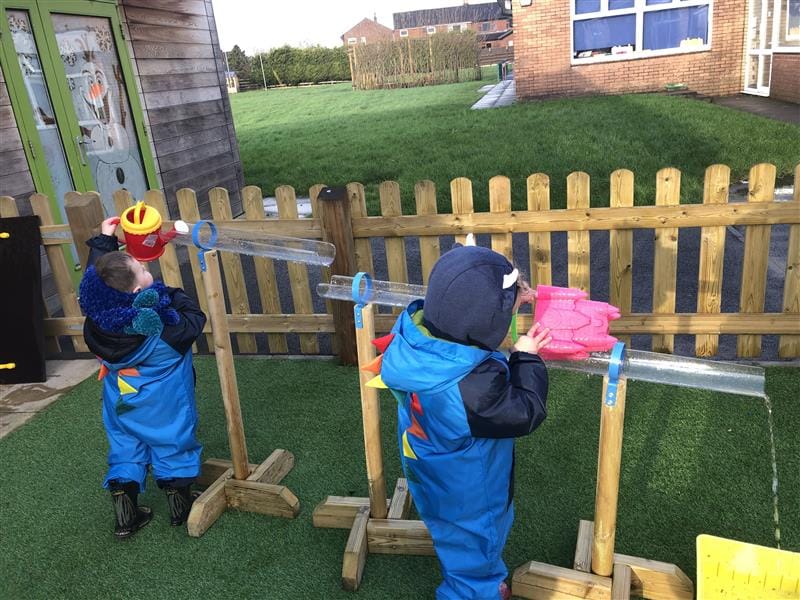
Why Is Sensory Play So Important in Nursery?
Children in early childhood education (nursery and preschool) are at the age where they are continually exploring, learning and processing everything they can see, hear and what others do to help make sense of the environment around them.
With a child's senses playing a key role in discovering new information, sensory play is a natural way to teach kids new topics whilst keeping them engaged.
Sensory play is so important in nursery for this reason, amongst others. It is also a stimulating activity that can help enrich children’s learning outdoors, heighten their multiple senses, and support brain development. Play based learning techniques often work really well during this stage, hence why sensory play is working.
Open-ended sensory play should be supported in nurseries and preschools to enhance children’s skills and help support their school readiness development as it is a stimulating, exciting activity that can encourage early years children to experience and enjoy learning.
Additionally, a child can enter nursery quite nervous or anxious at being in a new setting, away from mum and dad. Delving into fun, exciting, sensory activities, a child can experience a calming effect and more open to others around them: a fantastic activity for those first few weeks.
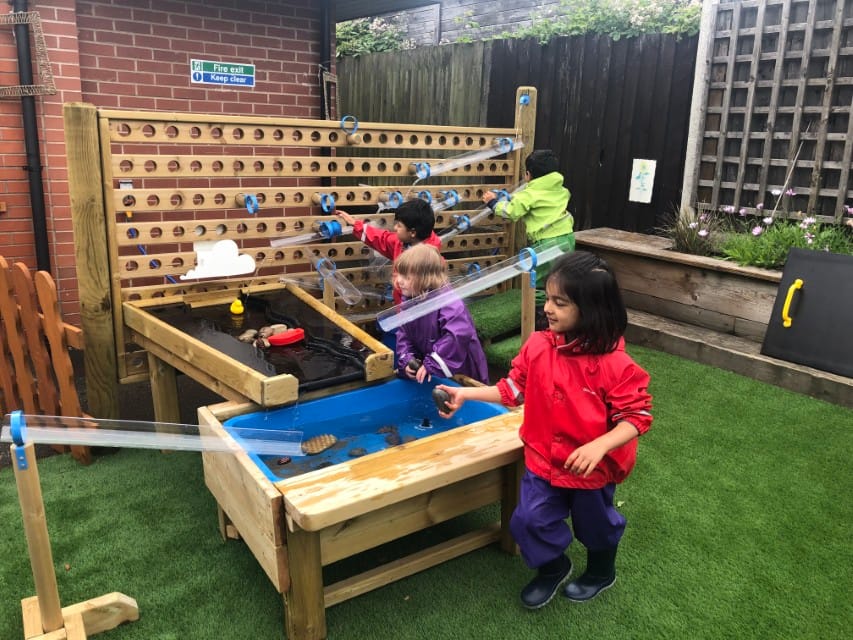
Benefits Of Sensory Activities
The benefits of sensory play include the improvement of problem solving skills, social skills, fine and gross motor skills, improving both short and long term memory, encouraging creative and independent thinking, improving senses and provides emotional regulation, thus supporting cognitive growth.
With so many benefits of sensory play, it’s no surprise why a child can learn a lot from this play method and why it's becoming more common within all types of schools.
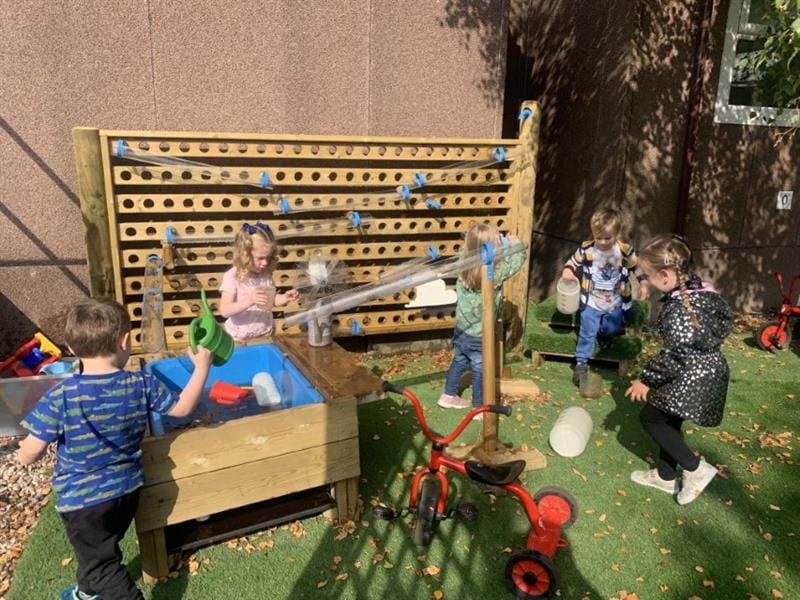
Carry on reading to find out how sensory play can develop these skills and what sensory play ideas you can introduce to help a child’s development in certain areas.
Problem Solving Skills
Sensory play can strengthen neurodevelopment and improve children’s memory as they play with different textures and different materials and try to complete tasks in different ways.
It helps in building and strengthening nerve connections in the brain, supporting cognitive development, cognitive growth and the ability to process complex tasks. In addition, it helps children’s co-ordination, fine and gross motor skills as they use various actions to engage in the activity.
Sensory play equipment, such as our Water Wall, allows a child to investigate more than just the liquid substance they can dip their hands in. Children can manipulate the channels the water flows down to change the course and work out how they can ensure it lands in the bucket rather than on the floor.
With water play equipment, children can learn new things about the texture through sensory exploration and even learn to describe it as they enrich their language and sensory experiences. Why is water wet? Is the water warm or cold today? Why do you think it’s warm or cold? How can we warm the water up?
You could include other natural materials to add different stimuli to the scenario, which encourages children to explore different objects and textures in a combined scenario. This is often why water play is seen as important.
Product Spotlight
When children engage with sensory play (such as water play), children will instinctively have a stronger interest with the topic as they can use their five senses to explore the topic further. From this keen interest, the child will experience cognitive growth and brain development as they open their mind up for more information and use their cognitive skills.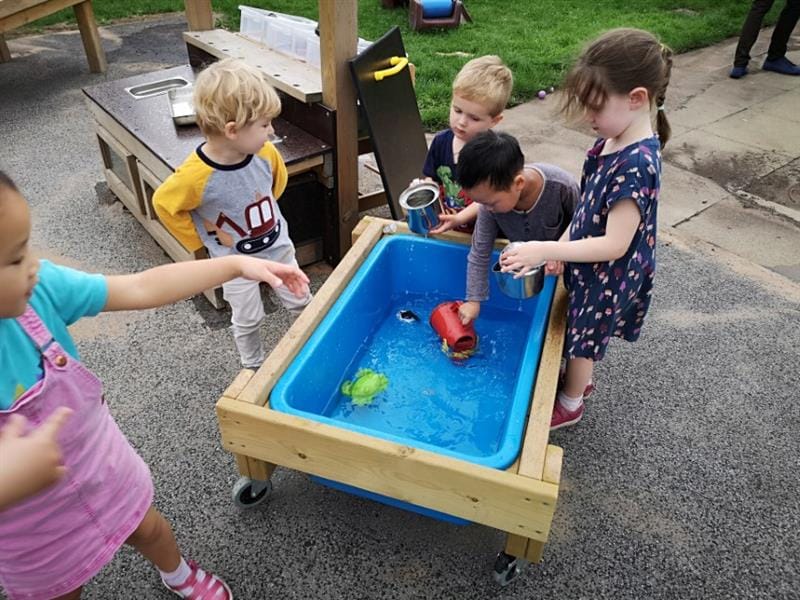
Communication, Language and Social Skills
Sensory play activities are fantastic for more than just heightening children’s senses. Language development sensory play supports children language development by encouraging them to talk about new textures and shapes they feel, and by helping them learn the meanings of descriptive words through repetition.
They can delve into the world of messy play equipment and sensory tables to improve their vocabulary, speech, social and cooperation skills!
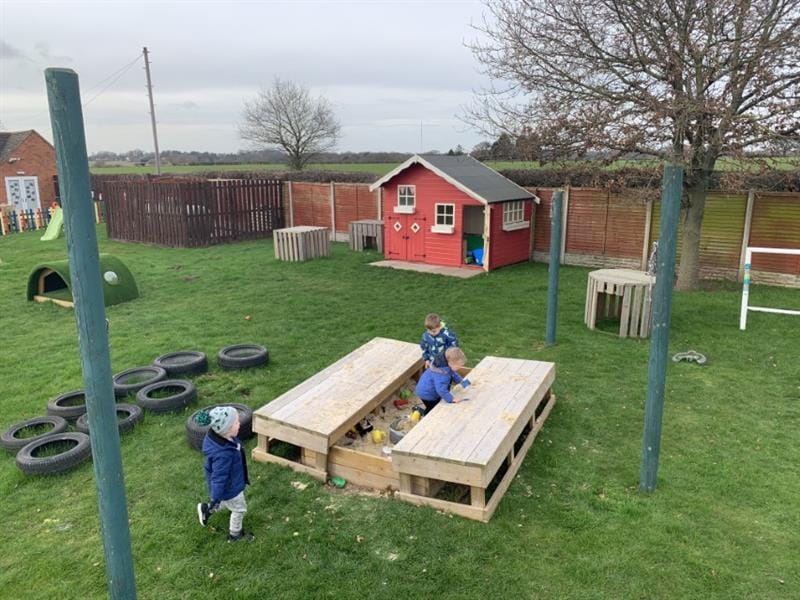
For example, different shapes acting as the treasure buried at the bottom of the Sand Box for children to discover is an excellent way to encourage speech and vocabulary.
A child can be asked to talk about the shapes they find and the texture of the sand as they further their vocabulary, which naturally supports language development.
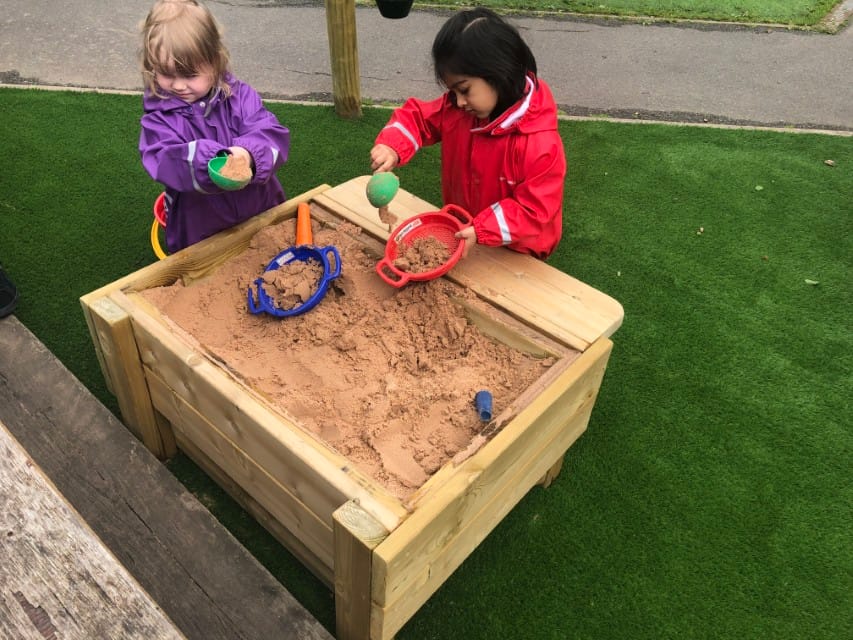
Co-operation, social interaction skills and turn taking can be further developed as the children take turns to find a buried shape and share the treasure with one another, improving important skills needed for primary school. From all of these aspects being improved, child development will be a lot quicker.
Playing fun imaginative games with one another helps develop communication, social interaction skills and developing language skills, along with creativity and making sense of the world, improve while children delve into a world of pirates, ships, beaches and treasure chests!
By incorporating emotional development sensory play ideas, you can help your children learn how to regulate their emotions and how to express them in a socially acceptable manner.
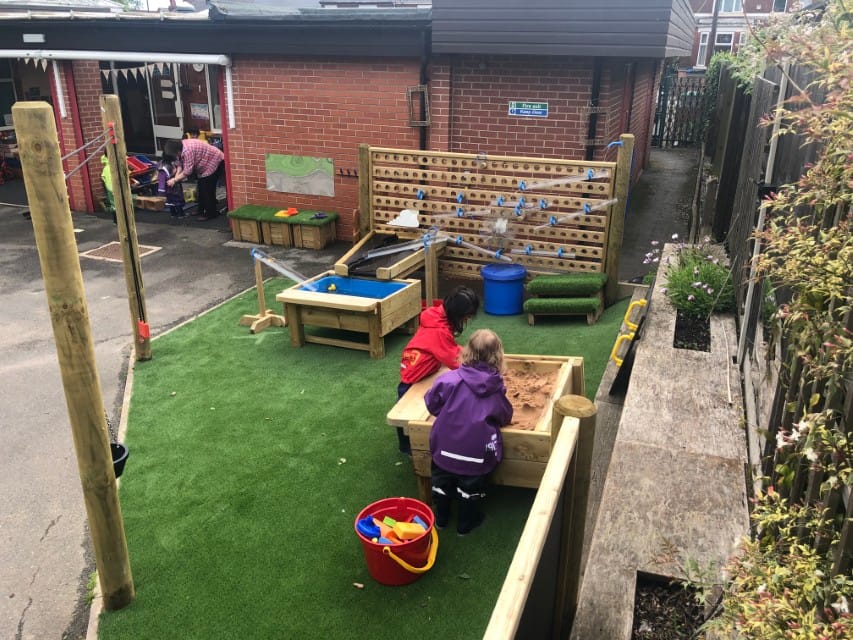
Develop Independence
Through sensory play, early years children are learning to develop their problem solving and decision making skills. While digging for treasure in the Covered Sand Box, children can make their own decisions of whether they would prefer to carry on digging or join in with the others sandcastle contest - who can make the biggest sand fort?
As children choose where, what and who they want to play with, their independence is growing and they’re beginning to think on their own: developing their school readiness.
Those who may be a little bit more timid indoors can feel free to investigate, learn and play once outside as sensory play adds excitement to the outdoors and the activities waiting for them.
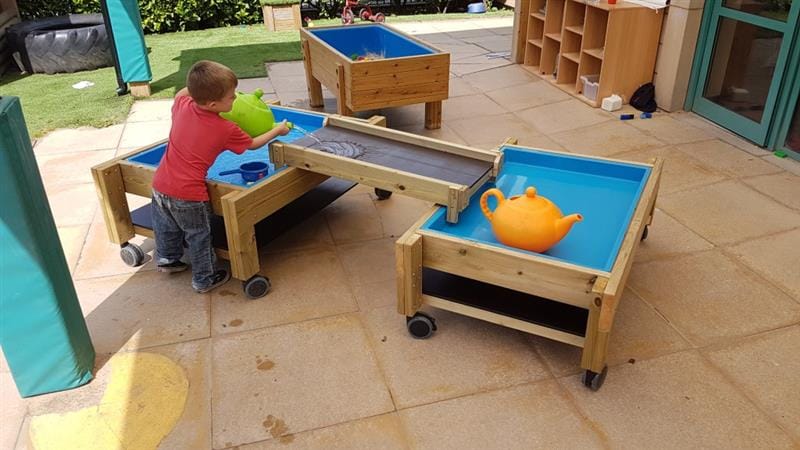
In an excellent outdoor learning environment, children learn to pick and choose from child-led and adult-led play activities as they explore numerous activities and present themselves with new challenges to overcome in their games.
Physical Development
Tactile play resources and sensory activities in the playground can help improve children’s senses and gross and fine motor skills as they use big and small actions to manipulate materials and loose play resources.
Scooping, shaping, moulding, manipulating and experimenting with natural resources like mud, sand and water is an excellent way to incorporate all of these actions.
Whereas active play equipment, such as trim trails and climbing frames, stimulate proprioception and vestibular systems as they learn about their spacial awareness, move their bodies and experience new textures (like our high-quality timber and tough ropes).
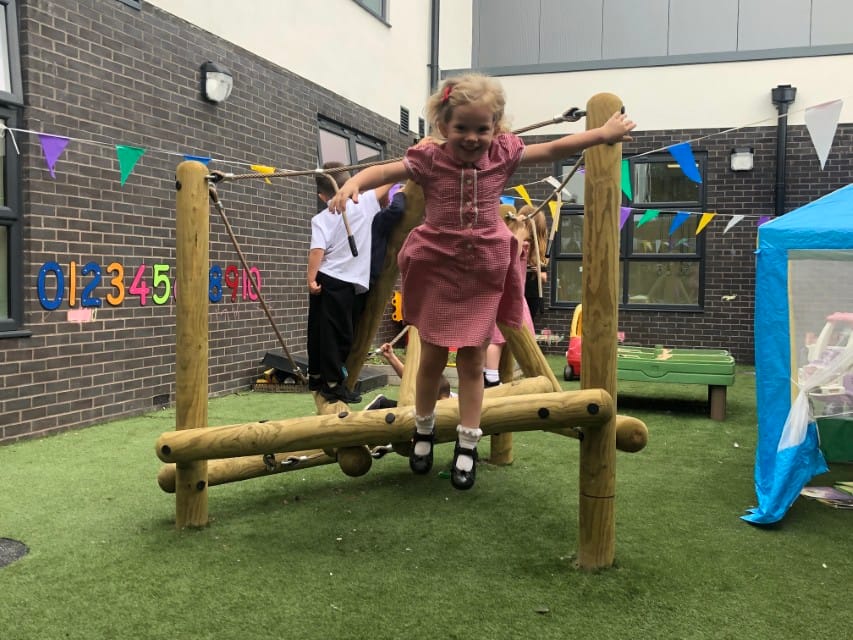
Our Pinnacle Hill Climber, which is the perfect introductory climbing frame for nursery & early years children, presents children with an exciting, tree-like challenge as they climb, grip, grasp, balance and swing from the smaller, rounded ropes and logs. The design of the Pinnacle Hill Climber encourages children to explore and climb.
Not only does our active playground equipment combine nicely with sensory play, it also enables children to target their all-round physical skills, including balance, upper and lower body strength, gross and fine motor skills, co-ordination, balance and climbing confidence as they navigate the exciting playground challenge.
Early years children also use the equipment as a focal point for their imaginative play as they take their game to the next level. There are so many different ways you can combine sensory play with other types of play.
Incorporate Sensory Play Activities In Your School Today
Hopefully this blog has highlighted the importance and benefits of sensory play activities and how they can help a child's development in a wide variety of different areas.
The sensory play ideas we've mentioned are just a few effective ways to introduce sensory play activities to your children and get them learning.
Pentagon Play believe that sensory activities are a great way for a lot of children to make sense of the world, whilst improving the child's senses and other skills. Whether the children are in early years mainstream or older children in SEN schools, sensory play is inclusive and anyone can harness it's benefits.
If you would like more information on the important role of sensory play or would like to know how we can help your school promote sensory play activities with our fantastic range of sensory play equipment, make sure to contact us and one of our fantastic sensory playground consultants will be in contact to help.
If you would like to develop your nursery garden or preschool playground, please feel free to Contact Us. We have designed and developed a specialist range, unlike anything currently on the market, of Nursery Outdoor Play Equipment that truly enhances your setting and meets your children’s needs, while providing stimulating activities for outdoor learning and play.

